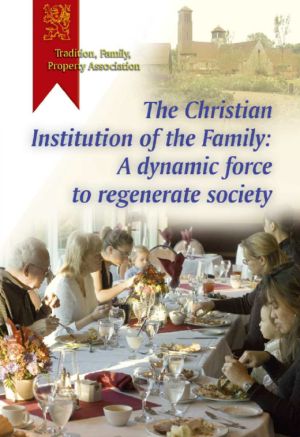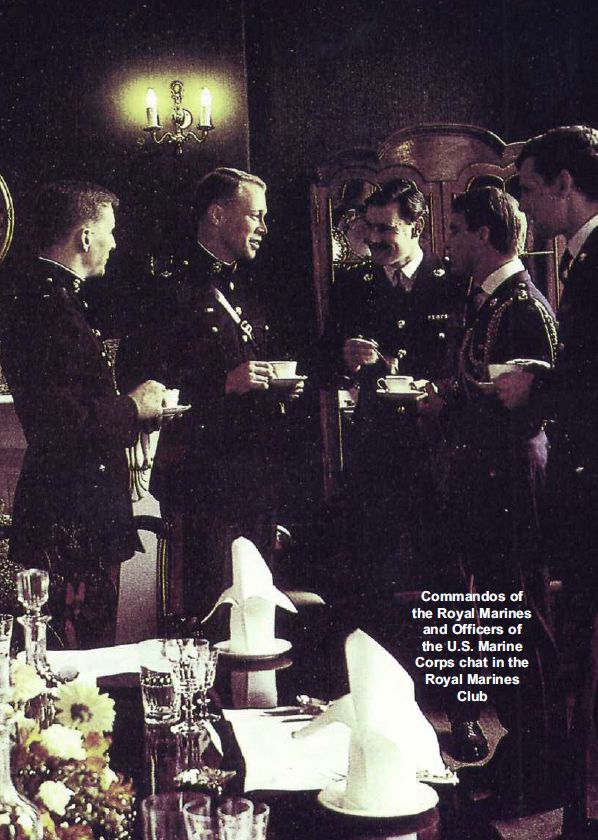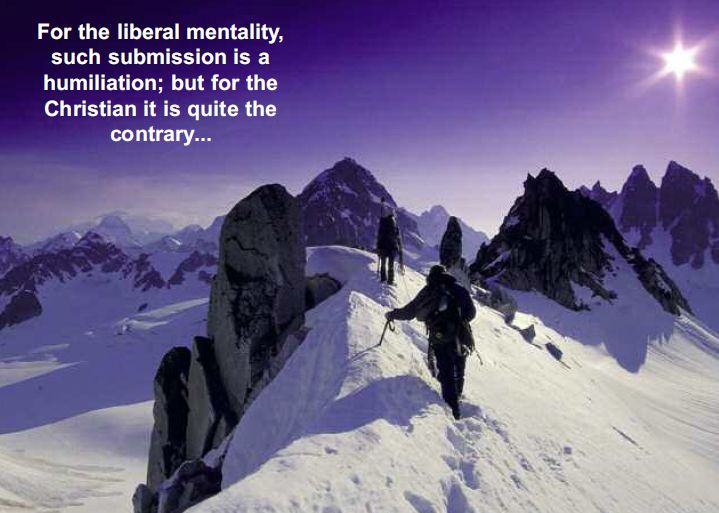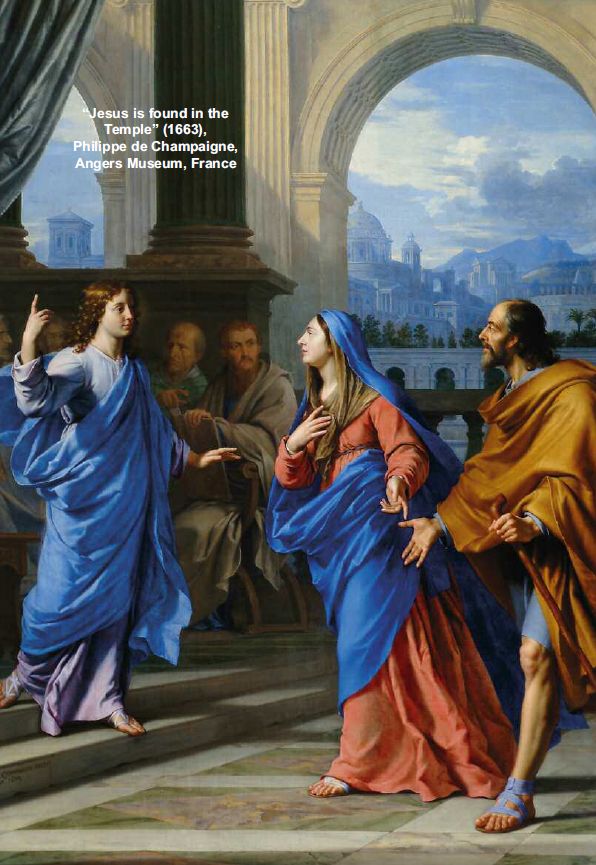|
Chapter 4
The
Virtue of Aseity:
|
|
|
Aseity is the virtue by which a person develops his own originality. In doing so, he develops qualities that make him unique and unmistakable in the work of Creation. “Halles food market”, Victor Gabriel Gilbert. Malraux Museum, Le Havre At this point someone could ask: “So what do you think is the solution? You said that this exuberance in the life of a people took place when communication was cut off, and that when communication recommenced this vitality disappeared. Does that mean we should bomb the roads so that everyone is cut off once again? So, the remote hamlet and the inaccessible places are the way back to a unified culture and civilisation? Are you saying that the big towns and cities are beasts that devour true civilisation? This is not a feasible solution!” The answer is quite simple. It is not true that the remote and inaccessible places of themselves bring about a lifestyle full of vitality. Our countries are full of these remote places that suffer the same ills of a culture and civilisation that have very little unique. This is because they also have, among other things, radio and television that affect them as much as anyone else in the cities. Breakdown of communications was a circumstantial and temporary event that favoured events, but there is another factor that is much more profound and important that brought this about.
This factor is a religious life. The Middle Ages is a good example. The Middle Ages in spite of its faults—indeed every human epoch has had and will have its shortcomings—was an era of intense religious life. Pope Leo XIII attests to this in his encyclical Immortale Dei: There was once a time when States were governed by the philosophy of the Gospel. Then it was that the power and divine virtue of Christian wisdom had diffused itself throughout the laws, institutions, and morals of the people, permeating all ranks and relations of civil society. Then, too, the religion instituted by Jesus Christ, established firmly in befitting dignity, flourished everywhere, by the favour of princes and the legitimate protection of magistrates; and Church and State were happily united in concord and friendly interchange of good offices. The State, constituted in this wise, bore fruits important beyond all expectation, whose remembrance is still, and always will be, in renown, witnessed to as they are by countless proofs which can never be blotted out or ever obscured by any craft of any enemies.5 Hence a truly religious life, clearly understood and properly lived, will stimulate each individual to develop his personality, will encourage him to express his originality and uniqueness with vigour and clarity. In other words, a truly religious formation shapes people with very strong personalities. This is why one can say that there is nothing more similar than two saints; but at the same time there is nothing more different. It is true that they are similar in their sanctity, but it is also true that there is a marked difference in their ways of being. Their personalities can have fundamental and transcendental differences. St. Thomas Aquinas explains the reason for this very well in the Summa Theologica and the Summa Contra Gentiles. He says that God wanted to create the present order of things with an immense variety of different creatures. Each creature would be unique, with its own characteristics, a dominant personality trait. Consequently each creature should shine with a wholesome originality. We are not talking about extravagance, and especially not about copycat behaviour or mass-produced mentalities. It is by placing all these many creatures side-by-side, each one reflecting God in the particular way he is called to do, that we can have a global idea of God in this life. It is like the sun being reflected in thousands of little mirrors. If we place all the mirrors together, as if in a mosaic, we can have a certain notion of the sun in its totality. Therefore, we can conclude that it is fundamental for the plans of Providence, as well as for the good order of human creatures themselves, that each one’s uniqueness clearly shines forth. Each one’s wholesome and legitimate characteristics should blossom, develop, impose, and triumph in the fight that is our daily lives. This is what brought about the prodigious originality of Medieval Europe. It was and is exactly this great good that we should cultivate as being the very foundation of human society. What name should we give to this great good, this great virtue? I pondered this question for a long time. I think the only adequate word to express this is aseity, as long as it is understood in a relative sense. Aseity is a word to be found in ecclesiastical terminology, particularly in the Franciscan moral and theological schools of the Middle Ages, and especially in St. Bonaventure. In order to understand the importance of aseity in relation to our study on the family, we will need to go into this subject more deeply. Aseity (Latin: a, from; se, itself) is a property by which a being exists of and from itself. One can easily see that this can only belong to God, Who does not depend for His existence, realisation, or end on anything other than Himself. However, we could consider that alongside this infinite and absolute aseity, there is a miniscule aseity—one that is relative, contingent, diminutive—which is the aseity of the human being who has received everything from God. This human being has an internal zone of his soul or being that has the characteristic mark of his individuality. This is received from God alone and not from any other creature. It is something that the person has and makes manifest and that he affirms and does not receive from anyone. The person himself is the initial mover of something born from within and not from without. Thus, to develop one’s God-given spiritual and intellectual potential, like the seed that becomes the blossom, aseity also develops and bears fruit. Each one reaches into himself and fully develops his talents. Aseity is, then, the virtue by which a person develops his own originality—in the good sense of the word. In doing so, he develops qualities that make him unique and unmistakable in the work of Creation. If we imagine a whole world of aseities, of personalities, of individualities that in an upright manner express and manifest themselves, we will have individuals bubbling with life. These individual lives will be a very fertile spray that will pervade every part of society, all the dominions of public and private life. They will constitute a truly lively people—not like today, when people are an inert and lifeless mass, as in the words of Pope Pius XII seen earlier.
Aseity of social groups Not only individuals, but also social groups can practice aseity. Social groups include neighbourhoods, parishes, institutions, academies, and even families. As a moral entity, each social group has its own aseity. Each group can engender and develop its own richness, which springs from the ample and organic richness of soul of its members. Aseity should be practiced under the guidance of the inspiration and light of truly Christian principles. It must be based on Faith and morality. Furthermore, it must be rooted in reason and true philosophy. With this solid foundation each social group, each region, nation, cycle of civilisation, or culture finds its proper direction. This is how aseity works. Aseity and Revolution If we analyse history from an impartial and, moreover, Christian perspective, we note that with the Enlightenment and later the political reforms of the French Revolution, social groups lost their vigour and cohesion within society. The old bond between State and individual dissolved. The family lost its strength. The individual lost his identity within the family. The family lost its identity within the region, regions lost their meaning inside the country, and even countries were swallowed up by what would become international bodies. Man finds small and closed groups suited and proportional to human nature. He properly develops his personality within these groups. When they are eliminated, there is nothing between the individual and the street, the individual and the masses, the individual and the multitude, or the individual and chaos. Facing the masses, the person feels completely isolated. Take the cells that make up a hand. They are not isolated. Together they share an organic relationship. However, grains of sand on the beach are isolated. A beach may have billions of grains of sand, but each one is isolated and does not form any kind of tissue like skin cells do. This is the status of man after the French Revolution destroyed the organic fabric of society. Today millions of individuals live side by side without forming a society. How a Person Is Influenced by the Opinions of Friends Man tends to accept regularly the opinions in vogue among his friends. This is a deterioration of the instinct of sociability that leads man to go with the tide without realising how wrong it may be. This is caused by the desire to agree with others and avoid the discomfort of disagreeing. It is compounded by a laziness to think for oneself and to assert oneself. The instinct of sociability thus pushes people to want to accept a dominant opinion in society. It forces people to depend on certain social tendencies and currents that oppose the practice of aseity. A modern example of this lack of aseity is the man who goes to a football game with a radio in hand. He listens to the radio while he watches the game because he needs the radio broadcast to boost his excitement. Although watching the same game, he needs someone to tell him what is happening to feel the pleasure of being part of the crowd and its excitement. Nothing could be further from aseity. Instead of developing interior qualities, this football spectator destroys them, allowing external things to make him contrary to what he ought to be. This desire to be one with the masses is caused by the natural instinct of sociability and the downward pull of fallen human nature after Original Sin. This tendency is so strong that unless constantly opposed, men go astray. Aseity Differentiates People from the Masses The virtue of aseity is what distinguishes a people from the anonymous masses. The masses are people without aseity. In final analysis, a nation with aseity is a truly Christian one, otherwise it will shift according to the flux of public opinion. The collective opinion often favours a kind of chaotic state. Everyone agrees with the chaotic state because of the pull of the collective opinion and a lack of aseity. Liberalism and Aseity Let us analyse liberalism. Although it seems to promote individual opinion, liberalism actually destroys true aseity. There was a time when to be liberal meant to state one’s opinions and display personality. The liberals argued about politics and confronted opposing opinions. Someone might even claim liberalism was an exaggerated aseity, since it stressed extreme individualism. Only naïve persons would define aseity like that. Actually, it was fashionable to state one’s opinions at the height of liberalism. However, these opinions were really subservient to the public opinion of the times that determined that course of action. To go outside these established liberal opinions would have taken strong aseity. For example, it would take courage to say, “I defend the principle of inequality of social classes.” True aseity, therefore, did not really exist. What did exist was true slavery to public opinion imposed under the false appearance of aseity. Knowledge of Truth, Grace, and Primordial Light What is true aseity? Just because one strongly exerts his individuality does not mean aseity is subjective. By the help of grace and use of reason, man knows truth. He especially perceives truth when the salvation of his soul is at stake. From this he discerns a notion of his primordial light. If faithful to grace, he is guided along the path of his primordial light. A Rough Draft to Be Completed by an Ideal Model According to the doctrine of the primordial light, at birth, man could be compared to a rough draft. He must finish it based on an ideal model. That ideal model is his primordial light. A man truly sanctifies himself when he strives to know, accept, and form himself according to his primordial light. So the practice of aseity cannot be based on arbitrary whims. It cannot be based on feelings. Rather, it must seek to obtain knowledge of one’s primordial light. The driving force—a mixture of grace and effort—is to reach his primordial light. That is aseity. Since the primordial light is extremely profound, it must come from deep within. When he strives to accomplish this interior ideal, with grace and effort, he is sanctified. Consequently man practices true aseity when he knows his primordial light and sanctifies himself. Thus, aseity creates an atmosphere which favours one’s primordial light and opposes one’s capital vice, by developing all of one’s qualities.
Aseity, the Church, and the Planet-Satellite Relationship Practicing aseity makes man immediately realize he cannot progress alone, and thus needs help and support. He senses his intellectual and moral weakness. He will never obtain a complete knowledge of his sublime ideal by himself. Indeed, he needs the support of another. For a man to put in motion that interior drive toward sanctification, he must place himself under the direction of another whom God has put in his path. By the light of Faith, he understands this not as a defeat or a humiliation at being overwhelmed by a stronger influence; on the contrary, as St. Paul says, this submission comes from a rationale obsequium (reasonable proposition). By Faith, he knows that the Church is given to guide him. She protects his weakness. He finds the truth under the direction of the Church who, as a teacher of souls, helps him to choose the right path and through whose sacraments he finds life in order to attain his goals. Thus, he first turns for support not to his own aseity or personality, but to the Church whom he heeds in an act of submission. In this way, he practices true aseity. Therefore, submission is not the opposite of aseity, but a movement towards practicing it. Imagine a man climbing in the Alps. He climbs and climbs and at a certain point he realises he cannot continue without a guide, so he requests one. By not accepting the guide does he show weakness or strength? Only a fool or megalomaniac would say the man lacked character by subjecting himself to a guide. Only a fool would ask, “Couldn’t he climb that mountain by himself?” A sensible man sees that he cannot climb the mountain by himself and will need a guide to achieve it. Since he wants to climb it at any costs, he shows character by accepting a guide. For the liberal mentality, such submission is a humiliation; but for the Christian it is quite the contrary. He accepts direction and guidance because he wants to reach a goal. Therefore, he uses all necessary means to reach that goal. While it may seem to be an apparent limitation in his action, it is actually something much higher: a true control of the will. Such an attitude enables us to see what a guide really is in these conditions. This happens, for example, with a ship captain who has full jurisdiction over the ship. Imagine someone saying, “Are you going to travel to Europe by ship? Do you accept the jurisdiction of a captain of your own free will? Don’t you see that by doing this you show a lack of character and strength? Be independent here on shore, proclaiming your independence to the oceans and winds. Don’t subject yourself to the captain of the ship.” Only a fool would do this. A wise man could laugh and say, “No, sir! I want to go to Europe. I know that I can only go by ship, which needs a captain. Therefore, long live the captain! By obeying him I have much more strength of will than you. You are weak, an imbecile, and full of complexes. You proclaim your independence to the beach. No one will listen to you, except the beach because it has no choice.”
Aseity and Obedience The same position applies when utilising the means to attain Heaven. Aseity leads us to certain legitimate and judicious submissions, such as the relationship between certain souls. We will refer to this metaphorically as the relationship between a planet and its satellite. The idea of this relationship cannot be limited to an outdated vision, prevalent in a certain milieu, that limits the idea of one’s superior to a member of the clergy who, through sermons or spiritual counsel, guides the faithful— and all whom are on an equal footing. There is an easy way to correct this view. On the one hand, the above is partly true, but, on the other, it is also true that the members of the faithful can guide and help each other, under the doctrinal and official direction of the clergy, to attain Heaven. God gave certain souls the mission of elevating and guiding other souls. It is not an official or juridical mission, but nevertheless it is a very real one that plays an immense role in the lives of souls. This mission develops through a “planet-satellite” relationship. This “planet-satellite” mission leads in turn to a veritable interplay of submissions, because the “satellite” soul understands he can only fulfil his mission by being submissive to the influence, advice, and authority of the “planet”. In this way, he walks on the right path. For the “satellite”, true aseity is practised when he accepts the authority or influence of the “planet”, just as in the case of the ship captain. To cross that ocean he must enter the right ship and accept the right captain. If he refuses, he plays the role of the fool screaming without purpose on the beach. Thus, the interplay between “planets and satellites” fits with the idea of aseity. He who knows how to obey those he should obey has true aseity. Obedience is a true manifestation of legitimate aseity. Obedience, Grace, and Free Will No one can force a man to do something good when he does not want to do so. As for forcing someone to do evil, this could be discussed. For example, among certain gangs there are those who are enslaved and are unable to break this relationship. However, it is very different when dealing with good behaviour. The Church teaches that without the help of grace no one can stably practice the Ten Commandments. This is the point of reference from which we must always consider anything relating to the religious crisis, spiritual life, or any other similar issue. Imagine the most fascinating Man in history: Our Lord Jesus Christ in His Humanity. He was history’s wisest, most intelligent, most perfect, most elevated, most pleasant, most gentle, and most attractive man—as well as the most terrible in His wrath. Imagine Him using His infinite personal superiority to influence overwhelmingly the least of men for a period of five years. Imagine that the two of them were the only ones on earth and Our Lord dedicating Himself exclusively to that man. If Our Lord were to use just His natural superiority, He would not be able to ensure that the man could practice all the commandments stably. Supernatural action must come into play. No matter how intelligent or how much influence the person has over the other, as soon as he turns his back the other person could easily fall into sin—even grave sin. One sin leading to another, after a year it could very well be that the person would try to kill Our Lord. He would think: “I am going to kill that brute. I am fed up with him! Why? I don’t know, but I am fed up with him!” This could happen because no one can be forced to be good. Thus within the “planet-satellite” relationship, the planet can only lead a satellite if the satellite wants to be led. The success of the “planet-satellite” relationship is never due to intimidation or personal qualities. A “planet” that thinks he can lead a “satellite” through his great talents has not understood the ABC’s of how talent or the strength of personality works. No intimidation in the world can make a man practice virtue. A defect never leads to virtue; only virtue leads to virtue. Therefore, a “satellite” that practices virtue because of the “planet” is really doing so of his own free will. He uses the planet to help him do what he already has in mind. He willingly obeys because he knows the other person will lead him where he wants to go. Seen in this light, to follow another person is legitimate, good, and upright. It is the way it should be. Think of a blind man who asks a boy to lead him to church. The blind man obeys the boy because he wants to go to Church and knows the boy will lead him there. The blind man is in charge, not the boy. The boy is only an instrument of the blind man’s act of will to go where he wants. The blind man affirms his sovereignty, not his weakness. Someone could object: “When an individual recognizes the need for a superior, he affirms his own weakness.” This is true. However, this weakness is not a weakness, but rather part of the order God placed in the universe. Everyone should be guided by a superior. It is not a weakness, but a limitation. It proves the individual is not God. It is an understandable act of humility. He who obeys practices aseity because he obeys the superior he has chosen and allows himself to be led because he so wills it. The proof of this is how much effort one must make to allow oneself to be led. It is a sacrifice, and ultimately a person will only be led if he wills it. In sum, the “planet-satellite” relationship works differently in virtue and in vice. Perfect aseity is found in this relationship because perfect independence and perfect hierarchy coexist together. Finally, the fullness of aseity is based on the acceptance by the “satellite” of the legitimate “planet” and legitimate authority so that it may attain its own goal. Slavery: Public Opinion, Authority, and Aseity With the “planet-satellite” relationship, a person practices virtue in a habitual state of independence that does not clash with obedience. He is independent from the attraction souls feel to accept and conform to the prevailing opinion. He is not one who lets himself be intimidated, mistreated, and dragged along. Whoever does not practice this legitimate obedience to his aseity becomes a slave of public opinion. Once seduced by the siren song of the masses, he is obliterated and dissolved in their collective spirit. He loses his principles, convictions, independence, and dignity. He is controlled by the masses.
Veronica is a very beautiful example of aseity! She was all alone when she comforted Our Lord. Aseity and the Passion of Our Lord Jesus Christ A truly horrific example of how the masses control people can be found during the Passion of Our Lord Jesus Christ. Our Lord is the perfect model of virtue. He showed this through preaching and performing miracles. The masses who saw and acclaimed Him as king changed on a whim. Many of them acclaimed Him king just to follow the majority, and without any personal conviction. Later they did the same thing when they shouted against Him, clamouring for His death and even insisting upon freeing Barrabas. Why? They shamefully succumbed to the dominant opinion. This leads to all types of aberrations. It makes the person follow the flow of public opinion, wherever it goes. He does not have the courage and aseity to stop and reason, “I don’t understand why Our Lord is mistreated. He doesn’t deserve it, so I shall protest against it.” A curious example of a middle ground between aseity and non-aseity is Nicodemus. He used to speak to Our Lord at night. On one hand, he had an independent opinion. On the other, however, his political interests and a probable lack of independence from the masses made him only speak with Christ at night. Veronica is a very beautiful example of aseity! She was all alone when she comforted Our Lord while He was persecuted and abandoned by everyone. Mary, His mother, is the perfect natural example of aseity. She practiced aseity to a degree that transcends all comparison. She was not concerned about others’ opinions, but stayed, along with the holy women, with Our Lord until the end. She is in a class all to herself. The apostles are examples of lack of aseity. Saint Peter, for example, was intimidated by a maidservant who laughed at him. The apostles fled, not just because they feared death, but because they lacked aseity: everyone thinking one way and finding it hard to affirm the opposite. In respect to this, the greatest drama of history, many of the worst ignominies were committed because of this lack of courage to resist one’s misplaced instinct of sociability and to go against the prevailing winds. It is impressive to see how low people can fall when they lack aseity. The fact that very few people had the courage to contradict the opinion of the masses is clearly illustrated in the Gospel. In the opposite sense, it is most beautiful to see how aseity grew strong after the descent of the Holy Ghost upon the apostles. Increasingly, people who speak out and go against the tide start to appear. This is to have true aseity. The founders of the Christian nations and institutions, as well as those who fought against widespread heresies and error, were all champions of aseity. Those who work for the Revolution are slaves of the kind of delight of being, thinking, and feeling like everyone else. Here we have exposed a nerve, a delicate problem of soul that warrants a very special, methodical, systematic, and gradual practice of aseity. A religious once told me how a friar of his community noticed that his convent was in decadence. He said he intended to follow along because he could not resist. This is a lack of aseity. He would rather be a coward and follow the others. This is a low and vile deed. One feels like telling him to follow the right path and saying, “Put your foot down, stand up, be a hero, have personality.” Laziness, Pride, and Public Opinion The capital sin of laziness is the cause of every lack of aseity. It produces a kind of softness by which an individual does not want to make the effort to enter into conflict with everyone else. Much to the contrary, a noble spirit, an individual with aseity, ascertains the truth and rejects the lies of the masses. “I perceive the truth,” he declares, “and I cannot stand your false statements. I will proclaim the truth, whatever the consequences. I will do what must be done. I stand against everything and everyone, no matter what may happen!” This attitude requires nobility and greatness of soul. The individual must love truth to such a point that to remain silent when it is denied becomes unbearable. If he is too lazy to fight (not only against others, but especially against himself), he will be too lazy to define himself as he faces those things. He will do everything incompletely. He will not define himself outwardly or inwardly and will roll into the abyss of that lack of aseity, subjecting himself to the dominating masses. Thus is born the spirit of the mass. The capital vice of laziness (always linked to pride) presides over this spirit. The individual who does not understand that life has no meaning if he does not serve the cause of the Church, good, and truth searches for the pleasure of life. He is motivated by pride. He considers life with the following rationale: “Life was granted to me to enjoy and I do not have to be so faithful to truth or good when they prevent me from enjoying life.” Later, when he must fight, he feels too lazy to engage in it. The result of the combination of pride and laziness is the moral devastation of our society today. Relationship of Aseity and Impurity In the famous and never sufficiently discussed subject of chastity, a great number of souls practice impurity because, as children, they did not have the courage to oppose the dominant opinion and affirm that impurity is evil. The principle thus dies in their souls and they end up surrendering themselves to impurity. This is a lack of aseity. If they had had the courage to defend good position, they would have had the courage to practice virtue. The great art of revolutionary forces is precisely to exploit the movements of the soul—comprised of passions and defects—and then gradually to lead the person to perdition. With this method, souls surrender lazily. The foundation of this method is a lack of aseity. The surrender to a collective whole, caused by pride and laziness, leads the followers of Our Lord Jesus Christ to a state of conformity with a world opposed to what He came to teach. He came to bring the sword and fire, not a false peace. If we want to deepen our counter-revolutionary formation, we should make a special effort to practice our aseity. It is a wholly different aspect of spiritual life to be fostered. It is of the utmost importance, especially for our days in which, more than ever before, this tyranny of the masses is overwhelming. Men with real opinions will find it hard to persevere, not so much because of persecution, fear, etc., but because of the factor of collective pressure which no man will be able to escape; because the great sins, the great errors, the great blunders are made when aseity gives in and this collective pressure triumphs. Therefore, this is a concept that might add something new to the reasons for our spiritual problems. 5) Leo XIII, encyclical Immortale Dei, 1 November, 1885, Bonne Press, Paris, vol. 2, p. 39. |
|







